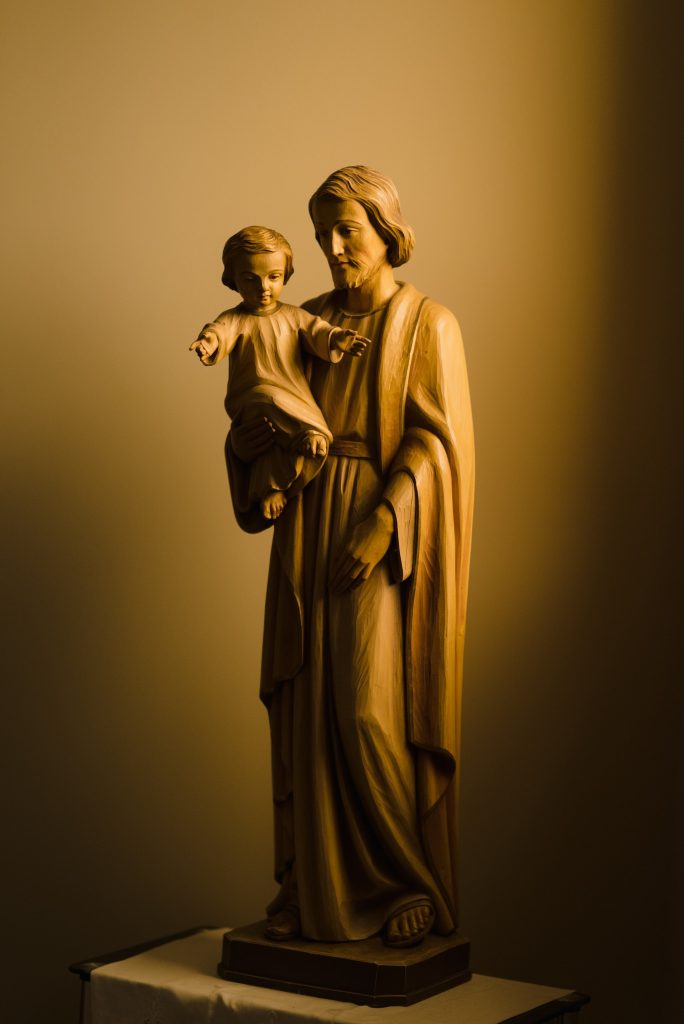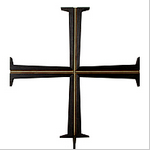
Readings for the Fourth Sunday of Advent
This year we have the longest possible Advent season, with Christmas falling on a Sunday. Thus, this Fourth Sunday of Advent actually begins the fourth FULL week of Advent, which perhaps provides us with the time we need to do that final scramble of buying and wrapping gifts; preparing for our menu; decorating our home; and, of course, preparing our hearts for Jesus’s birth in Bethlehem.
The first reading is a familiar one for us from the prophet Isaiah. What stands out to us is likely the line that “a virgin shall conceive, and bear a son, and shall name him Emmanuel” (Is 7:14). The Church understands this Old Testament passage as referring to Mary’s birth of Jesus. However, it is interesting also to consider the context. The LORD spoke to Ahaz and asked him to ask for a sign, but Ahaz refused. It may seem to be out of humility, at first glance, but, in fact, Ahaz is refusing to do what God directly commands of him. Despite the disobedience of Ahaz, Isaiah prophesies that the Lord will give a sign.
This passage is a remarkable refusal of an invitation, or maybe it is not all that remarkable. Throughout the Old Testament, we see God trying to direct his people, but they can’t quite seem to follow God’s guidance. At times, they have success – such as when they flee Egypt – only to be followed by failure, when they complain about their situation in the desert. And, in fact, this is not so different from us. God sometimes blesses us with exactly what we need or want, but we find a way to squander it or become weary of the conditions of the gift.
As with Isaiah’s prophecy to Ahaz, we see that God nonetheless brings his plan to fruition. Ahaz had an invitation to do what God wanted, but God’s will does not depend upon his obedience. Isaiah will prophesy the sign anyway, and the virgin Mary does conceive and bear a son. We may take some comfort in this, that even with our refusals, failures, and sins, God can work his plans.
And yet, what power there is in the obedience of Joseph! No doubt he had prayed over his situation with his betrothed being pregnant. He had come to a thoughtful decision and was prepared to do what he perceived as best. However, when the angel of the Lord appeared to him, he did what the angel commanded him to do. It may have seemed the unnecessarily difficult route, and it may have been intimidating, putting him in a situation where he would face intense pressure and a lot could go wrong. But he did it anyway.
Our psalm response today proclaims, “Let the Lord enter, he is the king of glory” (Ps 24: 7c, 10b). Joseph did precisely this; he let the Lord enter. He received the gift and the challenge, even not knowing precisely what would be required of him. As Christmas approaches, we have much to think about and do, and we may find it distracting us from the entrance of the King of Glory. We may, like Ahaz, fail to do what God asks of us. The good news is that Christmas will come anyway! Thankfully, the birth of the savior does not depend upon us and our efforts.
However, if we can let the Lord enter into our final exams, grading, gift buying, cooking, and decorating, we may remember how much God loves us, delights in us, and wishes the best for us – enough to become one of us in the Incarnation and to enter into our world to share in our toil of work, We cannot always change the demands of our life and circumstances of our time, nor does God make that a condition for his plan. We can, however, rejoice in God’s plan, which he carries out regardless of us because of his regard for us. In this final week of Advent, let this be our prayer underlying all other thoughts and actions: “Let the Lord enter; he is the king of glory!”



